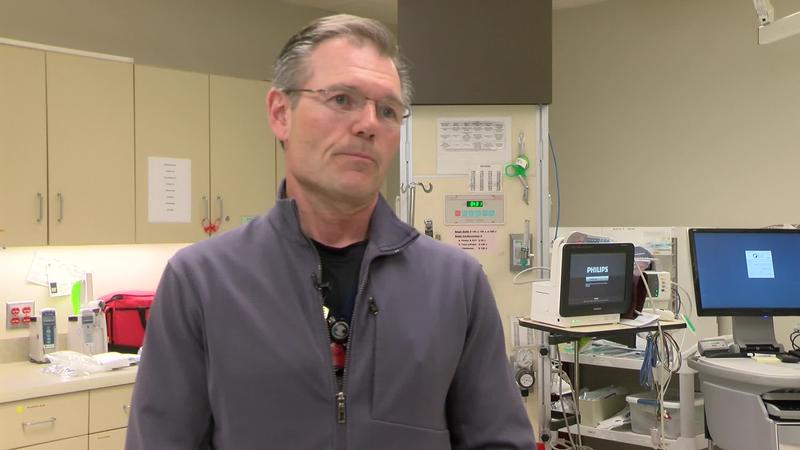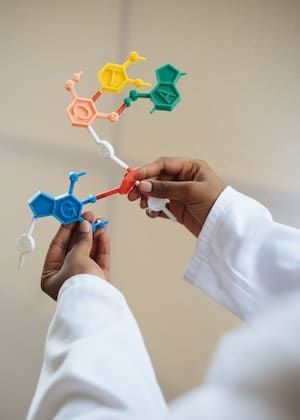
Talking with a Ketamine Infusion Doctor: Dr. Franklin
Dr. Stuart Franklin is what you might call a ketamine infusion doctor if you were talking with a neighbor or a friend. Formally, Dr Franklin is a board-certified psychiatrist in private practice, focusing on helping individuals and families with mood and anxiety disorders and pain management using a range of traditional and alternative therapies. For years, Dr. Franklin has been helping his patients improve their mental health and overall quality of life using ketamine therapy. Today, he will be telling us about this highly beneficial treatment.
Question: Please tell us a little bit about yourself, your practice, and your use of alternative treatments such as psychedelics.
Of course; I’ve been a practicing psychiatrist since 1998, mostly here in the Los Angeles area, and over the last 10 years or so, I’ve become quite interested in ketamine’s efficacy in the treatment of a number of different psychological conditions.
Question: What drove your interest in medicine? I mean, how did you become known as the ketamine infusion doctor?

What got me interested in ketamine treatments was my passion for seeing my patients get better! I was definitely skeptical at the outset, but results are results. Throughout my career I’ve done a lot of work with treatment-resistant mood disorder patients. I noticed that many of the traditional antidepressants available for treating such conditions helped somewhat, but they didn’t last long, and patients ended up being tied to those drugs on an ongoing basis, which of course you’d rather avoid if you have an option. So when I first saw the research being done by groups like MAPS on ketamine, and of course on some of the other psychedelic compounds coming to market, I saw a lot of promise. After speaking with some colleagues and the college, I started administering ketamine for my patients in 2015, and the success rate has been superb! I don’t know that I have good data on the subject but I think it’s true that perhaps ¾ of my treatment-resistant patients are seeing at least some benefit from the treatments, and it’s noticeably more effective (but of course, also more expensive). Happy patients make a healthy practice, and I’d say I’ve been thoroughly convinced.
Question: Decades ago, ketamine was mainly used as a form of anesthesia. Has it been surprising to watch it emerge into an actual therapeutic?
Yes, ketamine has been around, I think, for 50 or 60 years, and of course only after receiving FDA approval did all the buzz start to pick up (no pun intended). And I think a fair number of patients have been taking to the internet, reddit groups, blogs, sites like FrshMinds, to share their success stories. It clearly works, so this increasing level of interest isn’t that surprising.
Question: Who is an ideal candidate for ketamine treatment?
I would say ideal ketamine treatment candidates are just everyday people that are struggling to get better. Off the top of my head, I have treated patients for severe depression; bipolar disorder; personality disorder; anxiety; chronic neuropathic pain; suicidal thoughts; obsessive-compulsive disorder (OCD); post-traumatic stress disorder (PSTD); migraines; insomnia…probably more than that even, I can’t recall.
Question: How does your clinic help people with those conditions?
We believe that ketamine, even when following the therapy infusion protocols as laid down by the state regulatory framework for practitioners in California, is kind of a last resort – it’s expensive, it does have some side effects, and we doctors are a conservative bunch, so we’re not that anxious to change something that isn’t broken, if you know what I mean. But it can definitely play an important role in care and treatment for those that haven’t seen improvement from other types of products. So, first in our consultation, which is mandatory, we assess the patient’s needs, their history, trial of other compounds, etc, and determine what course of action makes sense, including ketamine-assisted therapy.
After the treatments, we make sure to rigorously follow up with our patients to assess their progress, change dosage, change therapeutics, etc. Our clinic approaches ketamine treatments on a case-by-case basis because we understand that a patient’s needs will vary, they’re never the same.
Question: Can you tell us a bit more about ‘ketamine-assisted therapy’?
Sure. When we administer ketamine to a patient, we don’t just give them a pill and send them home. The science is becoming quite clear that the patient should receive the drug while they’re working with you, it creates a much more focused and constructive experience, and we see much better results. So we’ll be in the room with the patient, running a version of a counseling session that is much more engaging, while also making sure that their trip is enjoyable. They are mentally better prepared and more comfortable this way, and the science suggests that they will improve more rapidly too.
Question: What is the success rate of ketamine treatment in your clinic?
As I mentioned earlier, I don’t think I have great data, but I’d estimate ¾ of our patients get good and long-lasting results from ketamine infusions, at least those being treated for a variant of depression.
Question: Does ketamine have any side effects?
Yes, just like most drugs, patients may experience side effects. The most common are pretty mild, nausea, etc. Some patients take anti-nausea medications that can help them minimize these side effects. Some patients may also experience double vision, loss of appetite, some pain at the injection site, and all of these typically just resolve themselves. People react to medications differently, which is why we ensure adequate observation during and after treatment.
Question: Since you started giving ketamine treatments, have you seen any examples of long-term effects?
I don’t recall any of our patients experiencing adverse long-term effects. This is not to say that it can’t happen, but it’s more common when the drug is being abused, like if it’s being taken outside of our facility and self-administered.
Question: How long is a ketamine infusion session?
The ketamine infusion itself takes between 45 minutes to 1 hour. However, there are some pre- and post-treatment regimens that we observe, so the total time in-clinic works about to between 90 minutes and 2 hours.
Question: How soon can a patient expect to see results?
Ketamine treatment produces rapid effects that help most of our patients experience a dramatic, noticeable improvement in mood and anxiety disorder symptoms within 24 hours after dosing. In most cases, the improvement becomes noticeable 1 to 4 hours after treatment. This is one of the biggest advantages of the treatment, compared to conventional antidepressants which take weeks or months to produce significant effects.
Question: How many ketamine infusions does a patient need? How often should they get them?
To get an optimal outcome, patients will need multiple ketamine infusions – a single dose of ketamine may produce significant improvement but cannot be counted on for a lasting solution, that persistent improvement comes with multiple sessions. However, the appropriate number and frequency of infusions vary from person to person. A typical course would see our patients receive a series of 6 infusions, every other day over a period of 12-14 days.
Question: After the first series of infusions, do patients need more sessions?
After the first course of infusions, most patients will require some ongoing sessions to sustain the improvements they witnessed. These ‘maintenance’ treatments vary but could be as often as one to two infusions per month; for others, their conditions might prove manageable with just an occasional, unplanned ‘top-up’ session.
Question: How long do the benefits from a course of treatments last?
It depends, of course, but we have treated depression patients who experienced minimal to no symptoms for up to 6 months after their first series of infusions. Not all patients will experience these long-term benefits, so a typical ‘maintenance’ infusion may be scheduled regularly, every 1 to 6 months, again depending on the individual patient’s needs.
Question: Apart from those conditions you earlier mentioned, are there other conditions that you might use ketamine to treat?
Yes, ketamine can help treat other conditions. I’ve seen it used to reduce symptoms of autoimmune disorders; it contains anti-inflammatory effects that can help improve symptoms of rheumatoid arthritis and other autoimmune conditions that cause pain, swelling joints, and stiffness. It can also, somewhat ironically, be used to help people suffering from substance abuse overcome their addictions (typically to alcohol or smoking). I know that there is a great deal of research ongoing to see where else it can be applied, it will be interesting to see just how broad its applications will ultimately be.
Question: Where is your clinic located? And how can people book an appointment with your clinic?
Our clinic is in Los Angeles, but we have patients coming from different parts of the west coast. You can reach and schedule an appointment with us directly, although I’ve been told to advise our readers here that they can book a consult through FrshMinds’ directly!
Learn More About Ketamine
- Before Googling “Ketamine Treatment for Anxiety Near Me“…
- 5 Things You Should Know Before Starting Ketamine Infusions for Bipolar Depression
- The Secret to Getting Health Insurance to Cover Ketamine Therapy
- Your First Ketamine Therapy Session: What to Expect
- Ketamine as a Rapid Onset Antidepressant
- A Ketamine Clinic Near Me: Roots Behavioral Health
- A Ketamine Clinic Near Me: The Infusion Clinic of Ocala
- A Ketamine Clinic Near Me: Dr Ken Starr in Arroyo Grande
- Ketamine Assisted Psychotherapy (KAP): Demographics, Data and Outcomes
- Meet ‘Sarah’, She Uses Ketamine Infusion Therapy for Depression
Want to learn more? Delve further into the realm of ketamine mental wellness through Frshminds’ Guide to Ketamine Clinics, our comprehensive directory featuring reputable ketamine clinics in the USA and a curated selection of articles that further explore the intricacies of ketamine treatment.

Comments